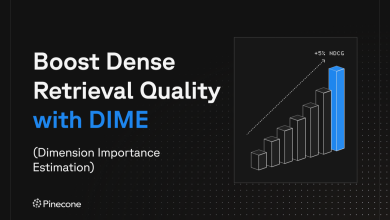
Artificial Intelligence is no longer an idea of the future. It is happening now, and it is happening fast. It certainly is not just a back-office tech initiative. Now, it’s front and center, reshaping how businesses operate, engage customers, and go to market.
For companies focusing on growth, especially startups and small and midsize enterprises, adopting an AI-forward mindset isn’t optional rather it’s essential.
AI promises speed, efficiency, and effective decision-making. But the gap between companies using AI strategically and those just dabbling is widening fast. If you’re still experimenting with disconnected tools while others are building AI into the day-to-day of their business, you’re likely to be falling behind.
Businesses that hesitate risk more than lost time—they risk missing the foundational shift in how value is created and delivered. As AI technologies evolve rapidly, so too do customer expectations and competitive benchmarks. The cost of inaction is no longer theoretical; it’s measurable in slower response times, missed opportunities, and increasingly outdated processes.
Differentiation in the Age of Intelligent Automation
We’ve entered a new era where AI is democratizing access to high-level expertise. Harvard Business Review put it well—AI is lowering the cost of knowledge. That changes the game as it’s no longer enough to have deep internal know-how. Now, your edge comes from what you do with AI—not just what you know.
So, what sets business leaders apart? It’s brand trust. It’s owning your data. It’s empowering teams to test, learn, and pivot faster.
And maybe most importantly, its human judgment guiding the machine—not the other way around.
In practice, that looks different across organizations. For some, it’s about automating operational workflows. For others, it’s finding new insights in customer behavior that can lead to smarter product development. The common thread is intentionality: smart business leaders are taking deliberate steps to integrate AI into the heart of their business strategy rather than treating it as a standalone tech layer.
AI Leaders Are Pulling Ahead
Businesses seeing real returns from AI are embedding it deep into their operations. They’re not just running pilots—they’re putting AI to work across functions, aligning it to business goals, and building cultures that reward cross-functional thinking.
They’re getting faster, smarter and more resilient. That kind of strategic integration is what creates lasting competitive advantage—not just early tech adoption.
These businesses are also redefining what interdepartmental teamwork looks like. Marketing, IT, operations, and finance are no longer operating on their respective islands. Instead, they’re sharing insights, automating workflows, aligning on data, and working cohesively to create more effective, long-term solutions. In doing so, they’re not only implementing AI, but they’re formalizing AI as part of how the business operates day-to-day
Marketing: A Case Study in Early AI Adoption
A clear example of AI’s immediate impact in business can be seen in marketing. Generative AI is already changing how work gets done. It’s accelerating timelines for content creation and making it easier to customize messaging at scale. What used to take a team days or weeks to do can now be done in a matter of hours.
What stands out is how accessible these tools have become. It’s not just large enterprises using them; small and mid-sized businesses are experimenting, too. That shift suggests we’re moving into a phase where AI isn’t just a tool for efficiency—it’s something that may reshape how work is approached across many areas of business.
While marketing is a visible example of this shift, the principles of automation, personalization, and speed are also transforming product development, customer support, and internal operations.”
AI and Agility Go Hand-in-Hand
Adopting AI effectively isn’t just about having the right tools, instead it often requires a shift in mindset. Research from MIT Sloan and BCG shows that companies combining AI with a learning culture are better positioned to adapt and grow.
Some businesses are using AI to identify emerging trends and adjust strategies with greater speed. But the tech is just one part of the equation. The overall success will depend on how teams work together, how decisions are made, and how willing the leaders within the business are to adapt and refine its approach at time goes on.
Agility, in this sense, isn’t about being in perpetual motion. It’s about the ability to pivot quickly when new insights emerge. The organizations that embrace experimentation and learn as they go are the ones best positioned to truly leverage the full power of AI.
Reframing the Customer Experience
AI empowers businesses to enhance customer engagement through personalized and timely experiences, going beyond basic efficiency. When coupled with concrete data practices and mindful execution, AI becomes a powerful tool for deeper customer engagement.
Across various industries, this means moving away from reacting to issues and instead means moving towards taking a more proactive approach. Whether it’s anticipating needs, identifying issues before they take place, or offering more insightful recommendations, AI, when used properly, gives businesses the advantage to stay ahead.
Making AI Part of the Strategic Core
If AI still feels like an experiment in your business, now’s the time to shift your thinking. AI can’t just sit in the innovation lab. It has to live in your strategic plan. That means putting the right people in place, defining the metrics that matter, and building buy-in across your leadership team.
The businesses doing this well aren’t chasing shiny objects. They’re asking smart questions: Where can AI reduce friction? Where can it create value? And how do we scale what works?
They are also thinking long-term. They’re doubling down on fundamentals: investing in skills development, updating models, and reworking legacy systems that weren’t built with AI in mind. This kind of groundwork work is what makes a lasting impact achievable for businesses.
Final Thoughts
AI isn’t going to replace smart strategy—it’s going to elevate it. The real differentiators moving forward won’t be budgets or brand recognition. They’ll be speed, adaptability, and the courage to reimagine how things get done.
If you’re leading a growth-minded company, now’s the time to get serious. AI isn’t a side project. It’s a business shift. And the companies that lean in, ask the right questions, and move with intent? They’ll be the ones setting the pace.



